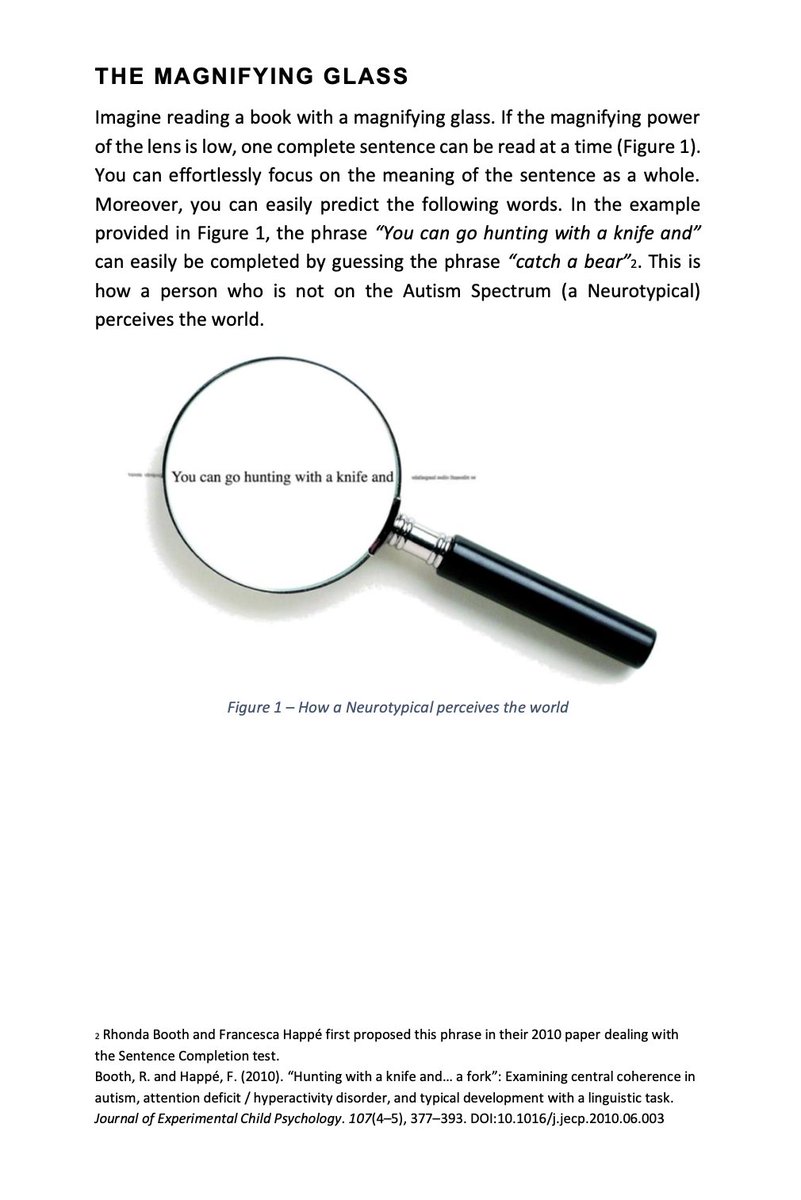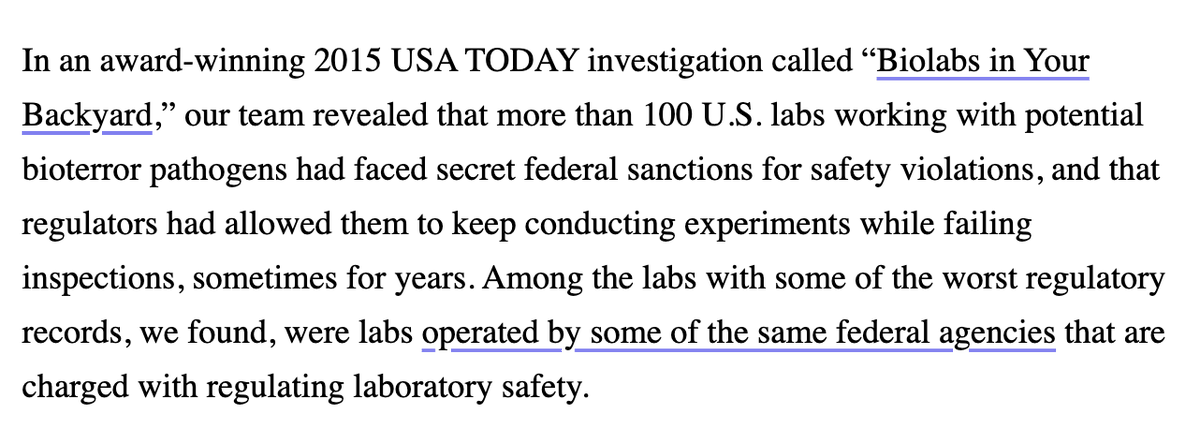
Today begins Autism Awareness Week, so I'll share the most important screenshots from my book on autism (available for free at gum.co/twtamg or as a paperback on Amazon amzn.to/3cqZLug)
1/ First, an example to visualize autistic perception (continues below)
1/ First, an example to visualize autistic perception (continues below)

5/ To continue this thread for #autismawareness week, peripheral functionality blindness: why people on the autistic spectrum are less proficient at activities whose real purpose is different from the stated one. 

• • •
Missing some Tweet in this thread? You can try to
force a refresh







